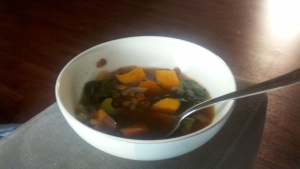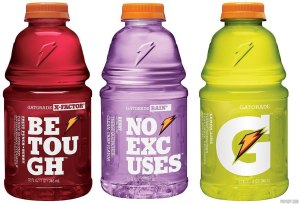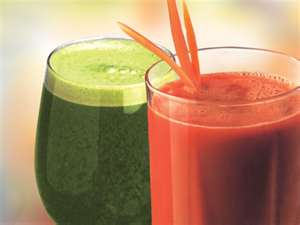My week as a vegan!
So last week, I decided to give the whole super-healthy vegan thing a try, just to see if I would become one those super-humans who only eats plants and feels amazing all the time. I actually did stick to the vegan rules the whole time (ok, well almost), and there were some good things and bad things I think.
First, the good.
The best thing about trying to be a vegan was that it forced me to cook. Every night. I actually got home from work, opened the refrigerator and pulled out ingredients to make a meal! Crazy! Kevin usually does all the cooking, but eating vegan without him left me no choice. I found myself liking it a bit; there’s something intrinsically rewarding about pulling together a homemade meal that I really did enjoy. I certainly eat a more balanced diet when I make dinner for myself, rather than just eating hummus and pita chips for dinner.
Then, the bad.
I missed my dairy! I have a piece of string cheese and a yogurt for lunch every day and I sorely missed those. I tried to replace them with a Kind Bar and an apple, but it just wasn’t the same. Honestly, it was really hard to feel full. The tempeh tacos I made filled me up, but that’s about it. I always left dinner feeling not hungry, but not really satisfied. Plus, may I’m just not good at making vegan meals, but nothing tasted all that great. It wasn’t that things tasted bad, but just nothing that really satified me in a delicious way.
And, the ugly.
I craved everything I wasn’t supposed to eat. I hated feeling so restricted, and I know that for the future, it just isn’t how I want to live my life. I don’t like feeling that certain foods are off limits, and I don’t want to feel guilty all the time. I much prefer to think about adding good foods, rather than restricting foods. I did find some new foods I’d like to add to my diet, like hemp milk and tempeh, and I found new recipes I’ll keep in the rotation. However, I just couldn’t justify living within such a narrow restriction forever. Plus, I’d have to take vitamins, which I really hate.
I’d love to hear about any of your dietary adventures! Have any of you ever tried veganism or another radical change?



 Please welcome guest blogger
Please welcome guest blogger 







